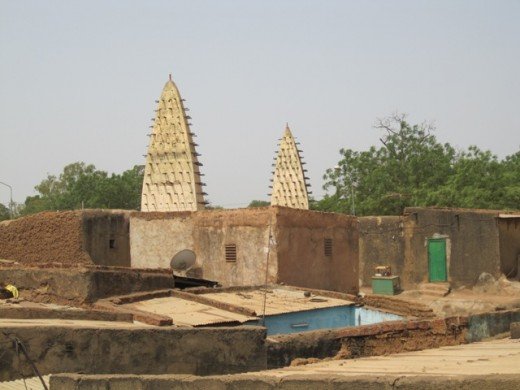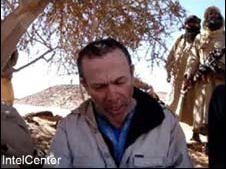Algeria, Mali and the West: Joining the Dots in the Sahara
‘We need to be absolutely clear whose fault this is. It is the terrorists who are responsible for this attack and for the loss of life.’ (David Cameron, House of Commons, 18 January)
‘The responsibility for the tragic events of the last two days squarely rests with terrorists.’ (William Hague, Sky News, 18 January)
In the light of the weekend’s tragic events in Algeria, the British government has been firm in its condemnation of the terrorists who carried out the kidnappings. This reaction is understandable. The attacks were conducted by bad, deluded men taking murderous decisions in support of a bad, deluded ideology.
But it is also only a partially correct interpretation. Yes, the immediate event in question can be blamed on a small group of terrorists, but these terrorists did not emerge in a vacuum, and once the dust has settled it is to be hoped that the British and other Western governments will develop a more considered, more nuanced analysis.
You do not have to go too far back down the trail that led to the kidnappings to discover Western actions that made them more likely. Mokhtar Belmokhtar, the mastermind behind the attacks, is probably a fanatic, definitely a murderer. But he rose to prominence in Algeria’s civil war in the 1990s, which had been triggered by the annulling of an election won by Islamists. The French government supported the illegitimate Algerian leadership in that conflict, thereby helping to nurture the generation of violent radicals from which Belmokhtar and other Al Qaeda in the Islamic Maghreb (AQIM) leaders sprung.
Nor can Belmokhtar carry out attacks alone. He needs men and arms, and to acquire these he needs money. He and his AQIM cohorts have had two major funding sources. The first is drug trafficking across the Sahara, a trade which would not exist if Europe, instead of deflecting its law and order problems onto Africa, legalised drugs. The second is kidnapping – tens of millions of dollars have been paid to AQIM by European governments in return for the release of hostages. (A third revenue stream is human trafficking, whose extent is unknown but which is rendered possible by Europe’s restrictions on legal migration from Africa).
With the funds from these activities, Belmokhtar can buy arms, including those that scattered across the Sahara after the fall of Gaddafi in Libya. Gaddafi’s demise was hastened by Western military involvement in the conflict, yet Western forces failed to stop large quantities of weapons falling into the hands of AQIM and of the Tuareg fighters who instigated the troubles in Mali to which the Algeria attack was a response. Some of those arms, moreover, are likely to have been sold to Libya by the UK, France and other European powers.
Belmokhtar can also buy men. West Africa is full of unemployed, frustrated young men who see no prospect of achieving their goals through peaceful means. Their governments have been hollowed out, first by Western colonialism (a former British foreign secretary in 1943 likened the granting of independence to ‘giving a child of ten a latch-key, a bank account and a shotgun’), and more recently by corruption. Mali’s pre-coup government is itself widely thought to have been involved in the drug trade, and the corruption this engendered left it ill placed both to invest in the country’s youth and to fend off revolt (it was eventually toppled by a ragtag bunch of junior soldiers). In nearby Nigeria, whose own fundamentalist terror mutation Boko Haram has supplied fighters to the Mali rebels, corruption abetted by Western oil companies has exacerbated northern discontent and made it easier for young northerners to persuade themselves that violence is justified.
This hollowing out of governments leaves young people marooned in the face of greater challenges. The population boom has combined with climate change to render it ever more difficult for them to find work and set up families. Rainfall in the Sahel region has declined by one quarter since 1950, and it is not Africans who have caused the environment to heat up. The population boom was assisted by Western medical advances, but was not accompanied by efforts by the colonial powers to educate their people. Europe enjoyed the same medical and public health advances as West Africa, but the population boom in the former was much less dramatic, and one of the reasons for this is that European women were better educated and therefore better able and more inclined to keep fertility to manageable levels. When Guinea-Bissau gained independence from Portugal in 1975, only one in fifty Guineans could read and write – again, the roots of current events can be traced back to Western actions. West Africa’s burgeoning generation of young men, meanwhile, has become a fertile recruiting pool for Belmokhtar and other jihadis.
I could go on, to discuss how other events with which Western countries had been involved – the colonial powers’ division of the Tuareg homeland, the Mali government’s historic failure to help the Tuareg cope with the effects of climate change, this month’s French intervention in Mali, etc – were all directly or indirectly linked to the disaster in Algeria. But Western policy-makers should be getting the picture by now (if not, they can look to this excellent Observer editorial for an even broader view). Cameron and Hague’s response to the kidnappings is understandable, but in the long-term unhelpful. If the West is to help stop these events happening in the future, a more constructive approach, in a globalising world where repercussions quickly cross borders, would be to examine its own role in making their occurrence more likely.



